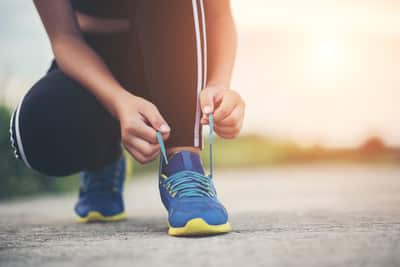
When it comes to tooth decay, we’re all aware of the usual suspects: lax oral hygiene habits, too much sugar, avoiding your six monthly dental check up.
But did you know that long cardio workouts may also take their toll on your pearly whites?
A recent study, published in The Scandinavian Journal of Medicine & Science in Sports, compared the oral health of endurance athletes with non-exercisers and found that the athletes were more likely to have tooth decay.
Doctors tested 35 triathletes and 35 non-exercising controls. Each person received an “oral examination, assessment of oral status with special regard to caries and erosion, saliva testing during inactivity, and a self-administered questionnaire about eating, drinking, and oral hygiene behaviour”.
Researched found that on the whole the non-athletes had better oral health, and that the more time an athlete spent training per week, the greater their risk of cavities.
The results are attributed to the fact that exercising (particularly cardio) reduces saliva levels in the mouth due to the extra breathing athletes do during intense workouts. In short, the mouth became drier and had higher alkalinity, which are thought to be ideal conditions for plaque growth. Saliva contains important elements such as bicarbonate, calcium, and phosphate, which not only neutralise plaque acids, but also help repair early tooth damage and decay.
Furthermore, consuming sugary energy gels and acidic sports drinks during training can encourage tooth decay.
If you’re a keen exerciser ensure you drink plenty of water throughout your training session, brush your teeth after exercise and avoid sugary sports drinks.
Chewing sugar-free gum when you work out can also boost your saliva production.
